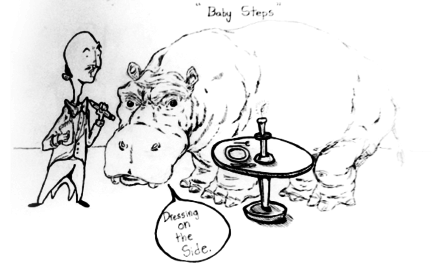To the Editor:
In 2008, a committee led by then Chancellor Michael Johns outlined a plan for establishing a mentoring ethos at Emory, focusing on junior faculty.
Earlier that year Dr. Keith Wilkinson, Director of the Division of Biological and Biomedical Sciences, and I began discussing a proposal that focused on preparing faculty to be exceptional mentors for graduate students, postdoctoral fellows and even undergraduates.
According to Wilkinson, “We owe our students a comprehensive, nurturing experience that prepares them for a career as a Ph.D., and that takes more than just an apprenticeship that teaches them to be like us. Further, none of us has been trained to mentor and some are better at it than others.”
I am convinced that a good mentor can teach unofficial lessons such as who are the powers in the department, institution, or field; how people find out about and get nominated for special opportunities (fellowships, awards, prizes); what are the leading journals; which organizations are important to join; what conferences are important to attend; how job searches are done; how to negotiate, raise issues and concerns and when to take risks. Being a mentor is a tough job.
It requires patience, understanding, time and consummate tact. Mentors must balance evaluative responsibilities with advocacy. We can all learn how to do this better.
The NIH Pathfinder’s Series is supported by the Laney School of Graduate Studies. Dean Lisa Tedesco supports mentoring and coaching as a best practice in graduate education that increases retention and success in all disciplines.
We hope to create a University wide discussion of, and emphasis on mentoring, for both students and faculty. The workshops and lectures will initially focus on the biomedical and life sciences, but the lessons learned will be transferable to all disciplines.
The first event in this series includes two days of presentations, consultations and workshops with Dr. Richard McGee on October 18th and 19th.
Dr. McGee is the Associate Dean for Faculty Recruitment and Professional Development and Associate Professor of Medical Education at the Northwestern University Feinberg School of Medicine. All faculty and students are invited to the presentations and discussions.
Pat Marsteller
Director of the Emory College Center for Science Education
The Emory Wheel was founded in 1919 and is currently the only independent, student-run newspaper of Emory University. The Wheel publishes weekly on Wednesdays during the academic year, except during University holidays and scheduled publication intermissions.
The Wheel is financially and editorially independent from the University. All of its content is generated by the Wheel’s more than 100 student staff members and contributing writers, and its printing costs are covered by profits from self-generated advertising sales.




